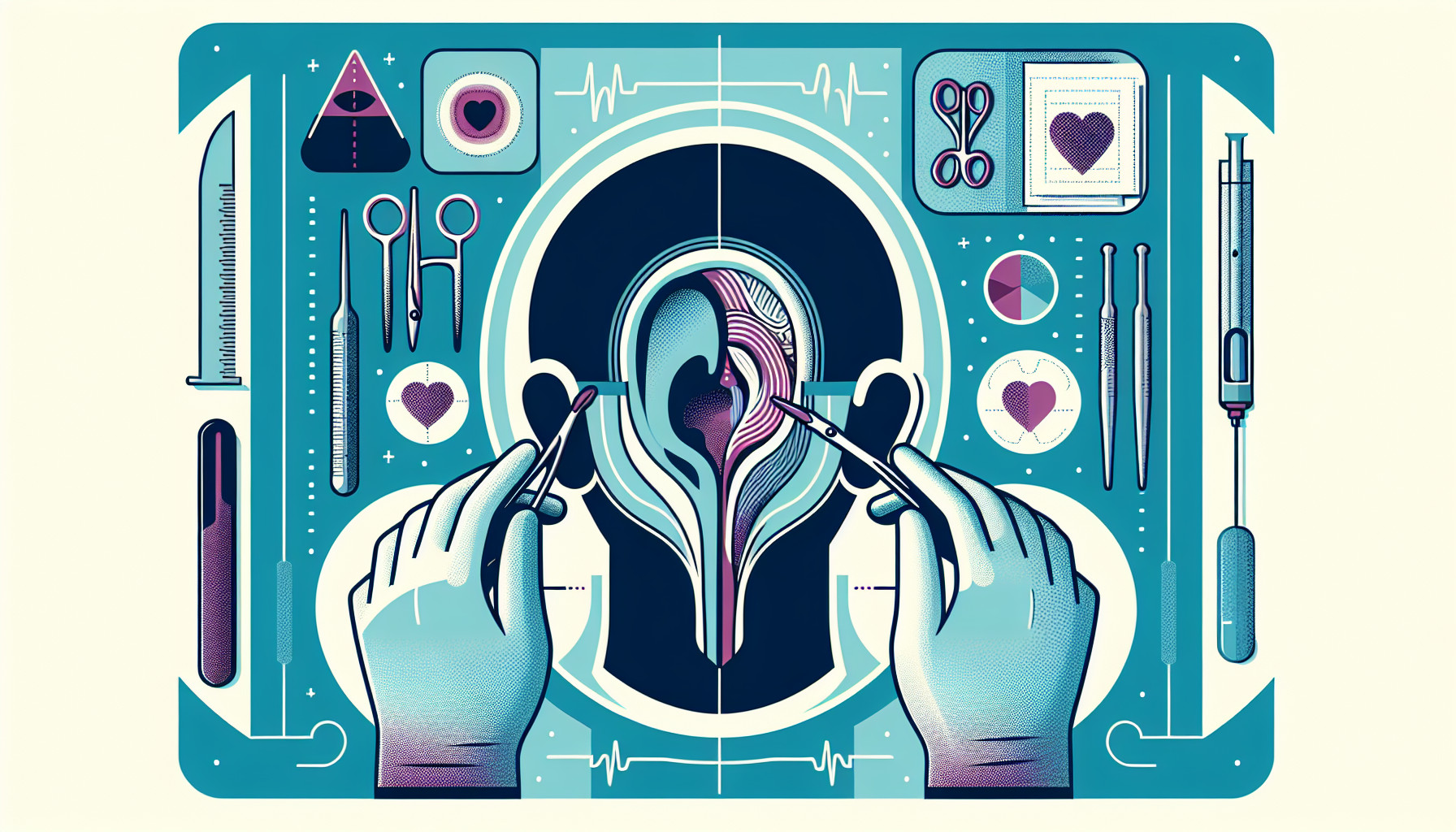Our Summary
This research paper looks at how a type of surgery, called endoscopic sinus surgery (ESS), impacts patients with a condition known as chronic rhinosinusitis (CRS), which is long-term inflammation of the sinuses. It’s particularly interested in how ESS affects symptoms related to the Eustachian tube, which connects the middle ear to the throat and helps balance air pressure.
The researchers followed 92 patients for a year after they had ESS. They found that before the surgery, 25% of patients showed signs of Eustachian tube dysfunction (ETD) - problems with the tube not working properly. After the surgery, the majority of patients reported that their symptoms had improved within the first three months, and by the end of the year, only 3.3% of patients were still showing signs of ETD.
However, the research also found that patients who had to have the surgery redone had higher rates of ETD symptoms during the year they were followed. Moreover, about 5.4% of patients said their symptoms actually got worse in the year after the surgery.
The study concludes that ESS can effectively reduce symptoms of ETD for most patients with CRS. However, further studies are needed to fully understand how the Eustachian tube works in patients with CRS, especially given the small percentage who reported their symptoms worsened after surgery.
FAQs
- What is the effect of endoscopic sinus surgery (ESS) on Eustachian tube dysfunction (ETD) symptoms in patients with chronic rhinosinusitis (CRS)?
- How long after ESS do most patients report alleviation of their ETD symptoms?
- What percentage of patients reported worsening of their symptoms one year following ESS?
Doctor’s Tip
One helpful tip a doctor might tell a patient about ear tube surgery is to follow post-operative care instructions carefully, including keeping the ears dry and avoiding activities that could increase pressure in the ears, such as flying or scuba diving. It is also important to attend follow-up appointments with the doctor to monitor progress and address any concerns.
Suitable For
Patients who are typically recommended for ear tube surgery include those with chronic ear infections, persistent fluid in the middle ear, frequent ear infections, hearing loss due to fluid buildup, and Eustachian tube dysfunction. Eustachian tube dysfunction is characterized by symptoms such as ear pain, pressure, popping or clicking sounds, hearing loss, and ringing in the ears. Patients with Eustachian tube dysfunction may benefit from ear tube surgery to help equalize pressure in the middle ear and prevent fluid buildup.
Timeline
Before ear tube surgery:
- Patients may experience symptoms of Eustachian tube dysfunction (ETD) such as ear pressure, pain, and hearing loss.
- Patients are evaluated by an ENT specialist and may undergo diagnostic tests such as a hearing test or tympanometry.
- The decision is made to proceed with ear tube surgery to alleviate ETD symptoms.
After ear tube surgery:
- Patients undergo a brief outpatient surgical procedure to insert ear tubes.
- Patients may experience mild discomfort or ear drainage immediately following surgery.
- Over the next few weeks, patients typically experience a gradual improvement in ETD symptoms as the ear tubes allow for proper drainage and ventilation of the middle ear.
- Follow-up appointments with the ENT specialist are scheduled to monitor the effectiveness of the ear tubes and address any concerns.
- In the long term, most patients experience a significant reduction in ETD symptoms and improved quality of life.
What to Ask Your Doctor
- How will ear tube surgery benefit me in alleviating my Eustachian tube dysfunction symptoms?
- What are the potential risks and complications associated with ear tube surgery?
- What is the success rate of ear tube surgery in improving Eustachian tube dysfunction symptoms?
- What is the recovery process like after ear tube surgery?
- How long will the ear tubes typically stay in place and what is the process for their removal?
- Will I need any follow-up appointments or additional treatments after ear tube surgery?
- Are there any lifestyle changes or precautions I should take after ear tube surgery to prevent complications or recurrence of symptoms?
- How will ear tube surgery impact my overall quality of life and ability to function normally?
- Are there any alternative treatments or therapies available for Eustachian tube dysfunction that I should consider before opting for surgery?
- What is the likelihood of needing revision surgery or experiencing worsening of symptoms after ear tube surgery in the long term?
Reference
Authors: Chen WC, Yang KL, Lin WC, Fang KC, Wu CN, Luo SD. Journal: J Chin Med Assoc. 2022 Jul 1;85(7):782-787. doi: 10.1097/JCMA.0000000000000734. Epub 2022 Jun 30. PMID: 35507042
